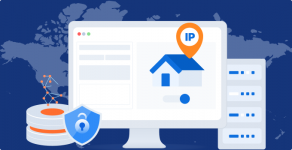Moskil
New member

In the dynamic landscape of online data aggregation, staying ahead of the curve is paramount. With the exponential growth of aggregator sites, the demand for efficient and reliable proxies has surged. Among the myriad options available, residential proxies have emerged as the gold standard, offering unparalleled versatility and effectiveness. This article delves into the transformative potential of residential proxies for aggregator sites and elucidates their pivotal role in optimizing operations and ensuring sustainable growth.
Understanding Aggregator Sites
Before delving into the significance of residential proxies, it's essential to grasp the essence of aggregator sites. These platforms serve as centralized hubs that collect, organize, and present data from various sources across the web. From price comparison websites to travel aggregators and beyond, these platforms streamline information retrieval for users, fostering convenience and efficiency.
However, the efficacy of aggregator sites hinges on their ability to access and extract data seamlessly from disparate sources while circumventing potential obstacles such as IP blocking, throttling, or geo-restrictions. This is where residential proxies emerge as game-changers.
The Power of Residential Proxies
Residential proxies represent a paradigm shift in the realm of proxy solutions. Unlike their data center counterparts, which emanate from a finite pool of servers, residential proxies harness the IP addresses of real residential devices. This imbues them with a level of authenticity and legitimacy that is indispensable for navigating the intricate web of online data collection.
One of the primary advantages of residential proxies lies in their ability to mimic genuine user behavior. By routing traffic through residential IP addresses, these proxies replicate the experience of organic browsing, mitigating the risk of detection by target websites. This not only enhances anonymity but also bolsters the reliability of data extraction processes.
Moreover, residential proxies boast unparalleled geographical diversity, allowing aggregator sites to access region-specific content with ease. Whether scraping pricing information from e-commerce platforms or aggregating local news articles, the ability to leverage proxies with diverse geographical footprints confers a competitive edge in the crowded aggregator landscape.
Optimizing Aggregator Operations
The integration of residential proxies into aggregator site infrastructures catalyzes a myriad of operational benefits. Firstly, by mitigating the risk of IP blocks and bans, these proxies ensure uninterrupted data retrieval, fostering operational continuity and reliability. This, in turn, translates into enhanced user experiences and heightened platform credibility.
Furthermore, residential proxies facilitate scalable data collection strategies, empowering aggregator sites to expand their reach and diversify their content offerings. Whether scaling up to accommodate burgeoning user bases or venturing into new markets, the agility afforded by residential proxies underpins sustainable growth and innovation.
Ensuring Compliance and Ethical Data Practices
In an era marked by heightened privacy concerns and regulatory scrutiny, the ethical utilization of data is paramount. Residential proxies play a pivotal role in ensuring compliance with data protection regulations by enabling aggregator sites to extract information responsibly and ethically.
By adhering to best practices such as rate limiting and respecting robots.txt directives, aggregator sites can cultivate positive relationships with data sources while safeguarding user privacy and data integrity. Residential proxies facilitate adherence to these principles by providing a secure and compliant conduit for data extraction activities.
The adoption of residential proxies represents a paradigm shift in the realm of aggregator site operations. By harnessing the authenticity and versatility of residential IP addresses, these proxies empower aggregator sites to navigate the complexities of online data aggregation with finesse and efficacy. From optimizing operational workflows to ensuring compliance with ethical data practices, residential proxies emerge as indispensable tools in the arsenal of aggregator sites seeking to thrive in an ever-evolving digital landscape.
